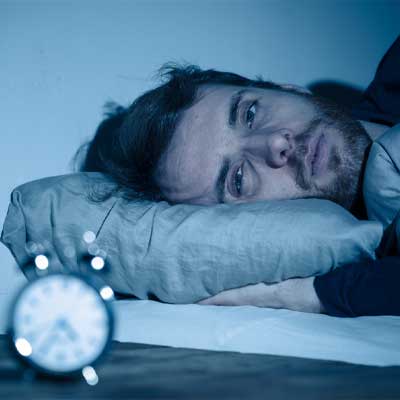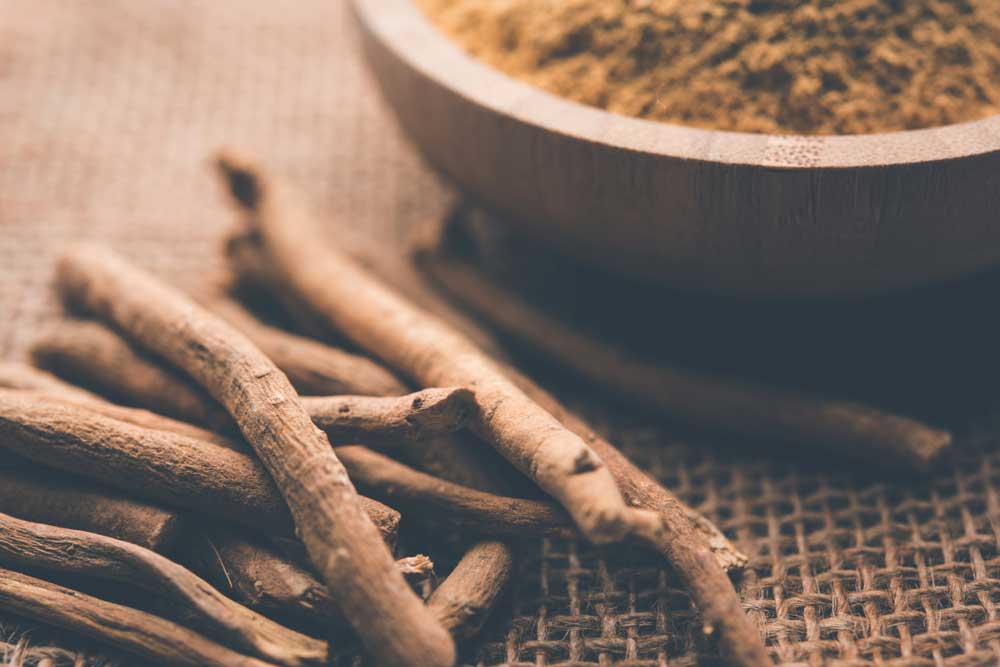Ashwagandha For Sleep

Is Ashwagandha Good for Sleep?
The effects of ashwagandha on sleep could be attributed to the presence of triethylene glycol, a substance with sleep-inducing properties. It is also abundant in withanolides, which are compounds that seem to affect how well the body handles stress. Stress is known to have a detrimental impact on sleep quality and make people drowsier throughout the day.
According to a preliminary study, ashwagandha for sleep may improve sleep efficiency by enabling individuals to sleep for longer periods of time. Participants in one actigraphy-based research reported that, on average, their sleep was 72% better after taking ashwagandha for six weeks.
The sleep-promoting properties of ashwagandha before bed may be attributed to a number of its constituents. According to research, the herb's naturally occurring triethylene glycol may cause drowsiness. Others claim that ashwagandha dosage for sleep affects GABA receptors, a crucial component of the sleep-wake circuit. It's conceivable that there are still unidentified substances contributing to ashwagandha for sleep purported medicinal properties.
Withanolides, the primary active components of ashwagandha, are thought to provide a variety of advantages, including the capacity to reduce stress. Poorer sleep quality and increased daytime drowsiness have both been related to stress. Another method that the best ashwagandha supplements for sleep may encourage better sleep is if it helps a person relax before bed.
Ashwagandha before bed has long been utilized in Ayurveda to promote restful sleep. It may accomplish this goal in two ways: directly affecting sleep or by reducing stress, which has a positive impact on sleep indirectly. Additional study on ashwagandha and sleep is still required to corroborate early results. Your complete physical and mental health and well-being depend on getting enough sleep. According to data, insomnia may raise stress levels and cause mood swings, cardiovascular illness, weight issues, and type 2 diabetes.

Ashwagandha Dosage for Sleep
Follow the directions on the specific ashwagandha supplement for sleep product you purchase if you want to use it for sleep. The best ashwagandha dosage for sleep is still up for dispute and may vary amongst the best supplements. Ashwagandha before bed shouldn't be used for more than three months in a row. Additionally, speaking with your doctor before using ashwagandha for sleep is crucial.
Remember that ashwagandha for sleep is often produced as a 5% withanolide extract, and our suggestions will be based on your use of this. The dosage is useless without knowing the extract ratio; therefore, if you're using KSM-66 ashwagandha, be aware that it could be a little bit stronger.
Having said that, the typical nightly ashwagandha dosage for sleep extract for sleep is 300–400 mg. Some individuals take 200 mg. In general, you would take more ashwagandha before bed to make it last through the night the earlier you took it in the evening. A slightly greater dose would be used if you were to take it twice daily, in the morning and the evening, for a total of 400–600 mg.
Ashwagandha Before Bed
Users report a variety of ideal periods for taking ashwagandha at night, from 30 minutes to 4 hours before bed, for sleep induction. It depends on your metabolism, how full you are in the stomach (any supplement will act more slowly on a full stomach), and other factors.
The ideal time to take ashwagandha before bed also depends on the outcome you want. For sleep induction, we advise taking it sooner; to avoid night terrors, we recommend taking it later. Some individuals take the ashwagandha to sleep several hours before night to relax. For persons with both insomnia and anxiety, the one high-quality human sleep research employed morning and evening dosage twice daily.

How Does the Best Ashwagandha Supplement for Sleep Work?
Numerous bioactive substances, including alkaloids, flavonoids, glycosides, steroids, and steroidal lactones, are present in the best ashwagandha supplements for sleep. Withanolides, which are thought to oversee most of the plant's advantages, are found inside the steroidal lactones. Ashwagandha for sleep antioxidant and anti-inflammatory qualities account for most of its advantages. Ashwagandha and sleep may decrease lipid peroxidation while also raising levels of antioxidant enzymes like glutathione peroxidase and superoxide dismutase.
Ashwagandha dosage for sleep ability to lower cortisol levels suggests that it affects the hypothalamic-pituitary-adrenal axis, which regulates the stress response. The best shwagandha supplements for sleep also seems to change the signaling of a number of neurotransmitters that are malfunctioning in anxiety disorders. Ashwagandha and sleep effects may be due to its GABAA receptor signaling enhancement.
Although additional research is required to validate this benefit, ashwagandha before bed may enhance endurance performance by raising levels of hemoglobin (the protein in red blood cells responsible for carrying oxygen to the rest of the body). The antioxidative properties of ashwagandha for sleep and its capacity to raise testosterone levels are thought to be responsible for its potential to enhance reproductive health. Although early research shows the best ashwagandha supplements for sleep may also increase testosterone levels in healthy men, this impact is more pronounced in infertile men with low testosterone levels.






